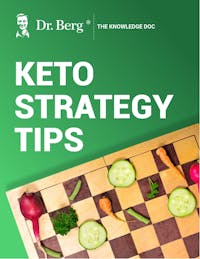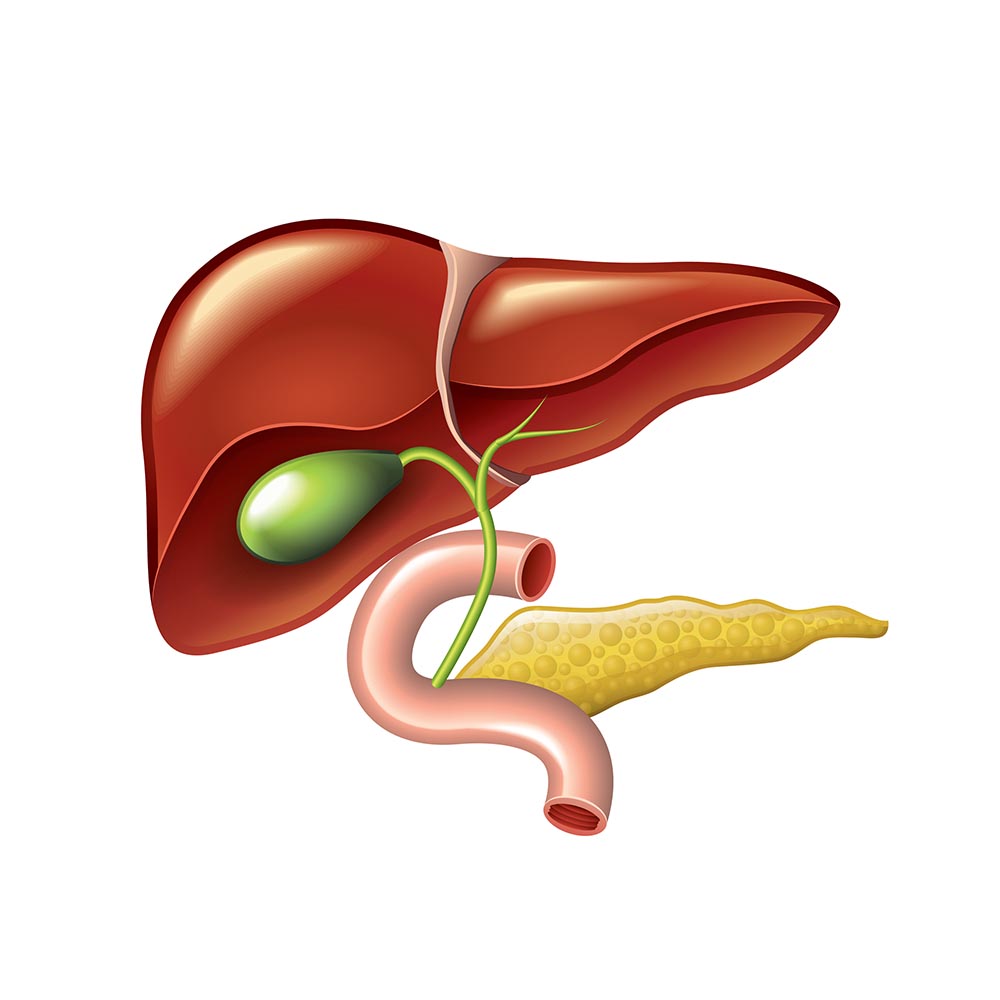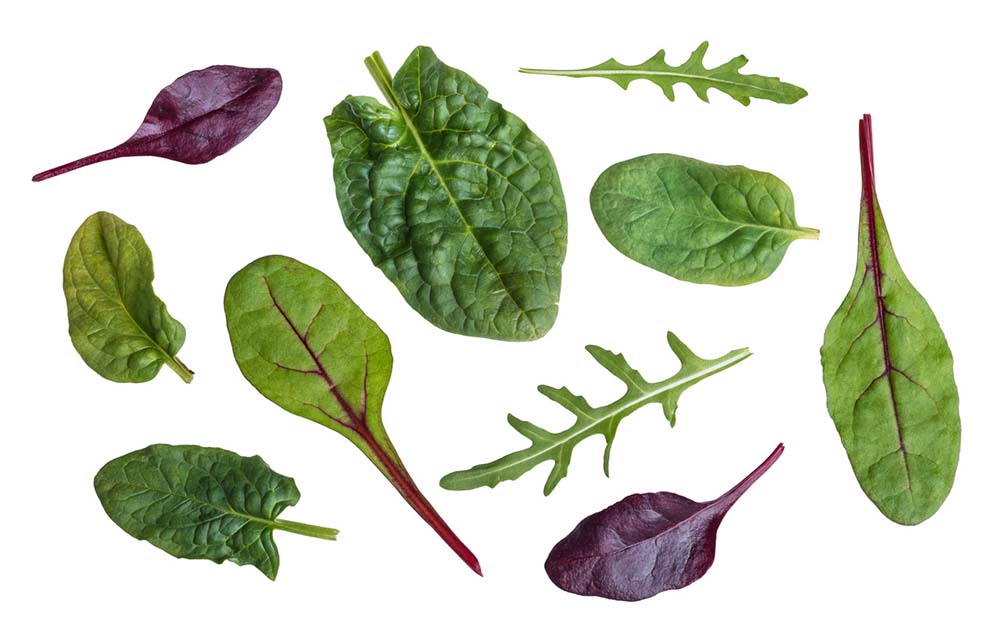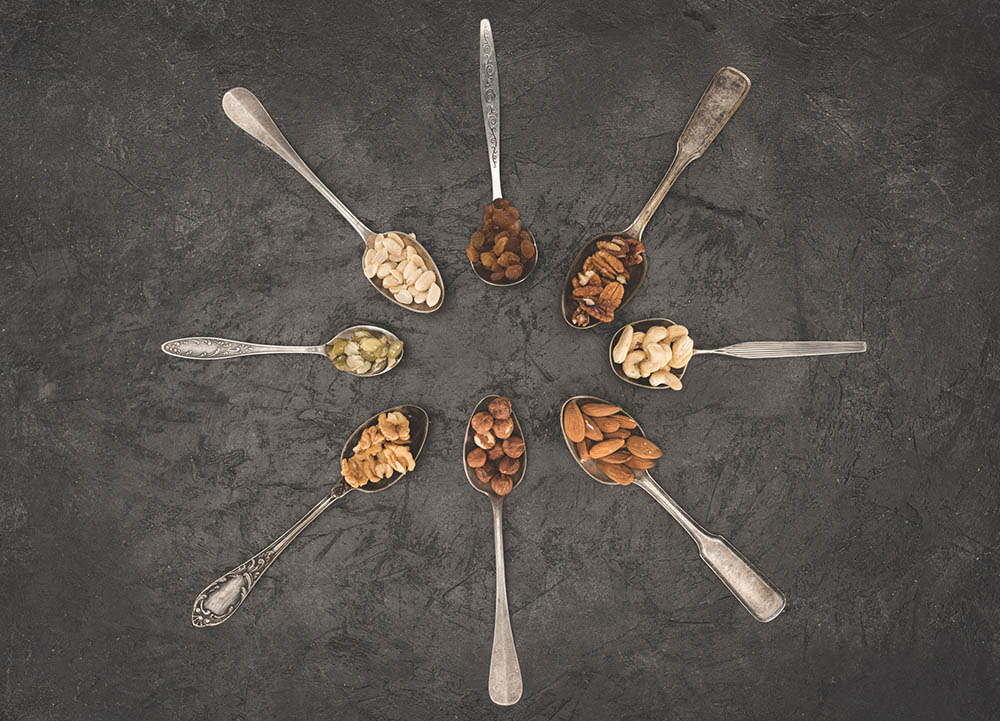6 Keto Tips for a Sluggish Gallbladder

Keto Strategy Tips
Expert advice on maintaining a successful keto lifestyle
Learn simple strategies to overcome common challenges and stay on track
Stay motivated with tips and techniques to keep you focused on your keto journey
Practical cutout wallet guide for quick reference on keto-friendly choices and strategies

Keto Strategy Tips
Expert advice on maintaining a successful keto lifestyle
Learn simple strategies to overcome common challenges and stay on track
Stay motivated with tips and techniques to keep you focused on your keto journey
Practical cutout wallet guide for quick reference on keto-friendly choices and strategies

Keto Strategy Tips
Expert advice on maintaining a successful keto lifestyle
Learn simple strategies to overcome common challenges and stay on track
Stay motivated with tips and techniques to keep you focused on your keto journey
Practical cutout wallet guide for quick reference on keto-friendly choices and strategies

Keto Strategy Tips
Expert advice on maintaining a successful keto lifestyle
Learn simple strategies to overcome common challenges and stay on track
Stay motivated with tips and techniques to keep you focused on your keto journey
Practical cutout wallet guide for quick reference on keto-friendly choices and strategies

Keto Strategy Tips
Expert advice on maintaining a successful keto lifestyle
Learn simple strategies to overcome common challenges and stay on track
Stay motivated with tips and techniques to keep you focused on your keto journey
Practical cutout wallet guide for quick reference on keto-friendly choices and strategies

Keto Strategy Tips
Expert advice on maintaining a successful keto lifestyle
Learn simple strategies to overcome common challenges and stay on track
Stay motivated with tips and techniques to keep you focused on your keto journey
Practical cutout wallet guide for quick reference on keto-friendly choices and strategies

Keto Strategy Tips
Expert advice on maintaining a successful keto lifestyle
Learn simple strategies to overcome common challenges and stay on track
Stay motivated with tips and techniques to keep you focused on your keto journey
Practical cutout wallet guide for quick reference on keto-friendly choices and strategies

Keto Strategy Tips
Expert advice on maintaining a successful keto lifestyle
Learn simple strategies to overcome common challenges and stay on track
Stay motivated with tips and techniques to keep you focused on your keto journey
Practical cutout wallet guide for quick reference on keto-friendly choices and strategies

Keto Strategy Tips
Expert advice on maintaining a successful keto lifestyle
Learn simple strategies to overcome common challenges and stay on track
Stay motivated with tips and techniques to keep you focused on your keto journey
Practical cutout wallet guide for quick reference on keto-friendly choices and strategies

Keto Strategy Tips
Expert advice on maintaining a successful keto lifestyle
Learn simple strategies to overcome common challenges and stay on track
Stay motivated with tips and techniques to keep you focused on your keto journey
Practical cutout wallet guide for quick reference on keto-friendly choices and strategies

Keto Strategy Tips
Expert advice on maintaining a successful keto lifestyle
Learn simple strategies to overcome common challenges and stay on track
Stay motivated with tips and techniques to keep you focused on your keto journey
Practical cutout wallet guide for quick reference on keto-friendly choices and strategies

Keto Strategy Tips
Expert advice on maintaining a successful keto lifestyle
Learn simple strategies to overcome common challenges and stay on track
Stay motivated with tips and techniques to keep you focused on your keto journey
Practical cutout wallet guide for quick reference on keto-friendly choices and strategies

Keto Strategy Tips
Expert advice on maintaining a successful keto lifestyle
Learn simple strategies to overcome common challenges and stay on track
Stay motivated with tips and techniques to keep you focused on your keto journey
Practical cutout wallet guide for quick reference on keto-friendly choices and strategies

Keto Strategy Tips
Expert advice on maintaining a successful keto lifestyle
Learn simple strategies to overcome common challenges and stay on track
Stay motivated with tips and techniques to keep you focused on your keto journey
Practical cutout wallet guide for quick reference on keto-friendly choices and strategies

Keto Strategy Tips
Expert advice on maintaining a successful keto lifestyle
Learn simple strategies to overcome common challenges and stay on track
Stay motivated with tips and techniques to keep you focused on your keto journey
Practical cutout wallet guide for quick reference on keto-friendly choices and strategies

Keto Strategy Tips
Expert advice on maintaining a successful keto lifestyle
Learn simple strategies to overcome common challenges and stay on track
Stay motivated with tips and techniques to keep you focused on your keto journey
Practical cutout wallet guide for quick reference on keto-friendly choices and strategies

Keto Strategy Tips
Expert advice on maintaining a successful keto lifestyle
Learn simple strategies to overcome common challenges and stay on track
Stay motivated with tips and techniques to keep you focused on your keto journey
Practical cutout wallet guide for quick reference on keto-friendly choices and strategies

Keto Strategy Tips
Expert advice on maintaining a successful keto lifestyle
Learn simple strategies to overcome common challenges and stay on track
Stay motivated with tips and techniques to keep you focused on your keto journey
Practical cutout wallet guide for quick reference on keto-friendly choices and strategies

Keto Strategy Tips
Expert advice on maintaining a successful keto lifestyle
Learn simple strategies to overcome common challenges and stay on track
Stay motivated with tips and techniques to keep you focused on your keto journey
Practical cutout wallet guide for quick reference on keto-friendly choices and strategies

Keto Strategy Tips
Expert advice on maintaining a successful keto lifestyle
Learn simple strategies to overcome common challenges and stay on track
Stay motivated with tips and techniques to keep you focused on your keto journey
Practical cutout wallet guide for quick reference on keto-friendly choices and strategies

Keto Strategy Tips
Expert advice on maintaining a successful keto lifestyle
Learn simple strategies to overcome common challenges and stay on track
Stay motivated with tips and techniques to keep you focused on your keto journey
Practical cutout wallet guide for quick reference on keto-friendly choices and strategies
Some people wonder if they can do the ketogenic diet if they have gallbladder issues. I'm here to tell you that you can. In fact, doing keto in a healthy way with my top 6 keto tips for a sluggish gallbladder can actually help you to improve your symptoms.
In this article, you will learn:
What the gallbladder is, what it does, and what can make it sluggish.
How to identify symptoms of a sluggish gallbladder (like pain on the right side, indigestion, nausea, and burping).
How do to keto if you have gallbladder problems - and how you can even improve your symptoms with the right approach.
What does the gallbladder do?
Lots of people never give a thought to the small, pear-shaped organ located underneath the liver.
The gallbladder is an important organ that plays a key role in digestion. It works with the liver to break down fats.
The liver makes a substance called bile. Bile is like a dishwasher detergent that dissolves and breaks down fats. It is released from the liver to the gallbladder, which stores and concentrates bile until it is ready for use.
And then whenever we eat, bile is released through the bile ducts to the small intestine, where it breaks down fats from our food so that we can use them as fuel. It also helps us to absorb fat-soluble vitamins.

What is a sluggish gallbladder?
The term "sluggish gallbladder" refers to when this organ isn't functioning at its full capacity, and instead bile flow is slow and inefficient.
Proper biliary flow from the liver and gallbladder are key to a healthy digestive tract. When the gallbladder is not up to speed, this can cause many problems in the body.
A sluggish gallbladder can result in several uncomfortable symptoms.
Sluggish gallbladder symptoms
Some signs that you might have issues with your gallbladder include:
Bloating after eating.
Feeling of fullness or soreness underneath the right ribcage.
Abdominal pain on the right side.
Pain up into the right shoulder blade.
Intolerance to fat.
Stool that floats.
Nausea.
Burping and belching.
Indigestion.
Headaches on the right side.
While these sluggish gallbladder symptoms don't necessarily mean that you have gallbladder disease or need gallbladder surgery (which should definitely be avoided), they are a sign that your gallbladder health needs to be addressed.
If you don't pay attention, over time you could develop gallstones, start becoming deficient in nutrients, not dispose of toxins properly, and much more.
So what do you do about it?
First, take note that gallbladder removal should not be the go-to solution. You need this organ to concentrate bile and promote proper fat breakdown. Learn more about the importance of bile and how to increase its production here.
While many doctors promote gallbladder surgery as the primary option when you have issues like gallstones, it should really be avoided if at all possible.
Instead, look to your diet for relief. You can help keep this important organ healthy with a wholesome approach to the ketogenic style of eating.\
Top 6 tips for helping a sluggish gallbladder on keto
1. Do intermittent fasting
Intermittent fasting is a style of eating where you only eat at designated meal times. The rest of the time, you fast and do not snack. This helps to give the gallbladder and liver a rest. That rest time allows bile to become concentrated again.
When you eat, you want bile to be nice and concentrated, so that it can break down the fats in your food and help you extract fat-soluble vitamins.
If you eat too frequently, then you won't ever be able to get the bile delivered from the liver to the gallbladder to become concentrated enough. Instead, it will be a dilute alternative that isn't able to really do the job properly.
That is why intermittent fasting on the ketogenic diet is so important. You'll take the stress off of your liver and gallbladder, allowing proper recycling of bile so that your digestive system runs smoothly. It is also an effective weight loss tool.
2. Add in lots of vegetables
When you do keto, you are going to be in fat burning mode frequently. Fats have to go through the liver and the gallbladder to be metabolized. Vegetables help to keep this process flowing, flushing it all through the digestive system in an efficient way.
If you don't eat vegetables while doing keto, you will end up with a fatty liver. This is not something you want. Learn more about preventing a fatty liver.
Instead, you will want to eat lots of vegetables every day. If you need some tips on how to get more vegetables into your diet, watch my video here. And the more bitter the veggie, the better. Try arugula, kale, Swiss chard, spinach, radishes, onion, garlic or parsley. Beet tops are especially good for healthy bile flow.
But don't eat spinach if you have kidney stones

3. Take bile salts
Taking purified bile salts can help relieve problems if you don't have enough bile in your digestive system.
One of the important goals here is to prevent gallstones. Gallstones can form in bile ducts when we have a lack of bile. Bile is necessary to break down cholesterol. So without enough of it, cholesterol gets super concentrated and gallstones can form in the bile ducts.
Taking purified bile salts is a great way to add bile back in if you don't have enough. It can fill in what's missing and speed things up. Taking one after each meal can be really helpful, especially if you have a history of issues with this system. Check out my Gallbladder Formula if you are interested. It supports healthy fat digestion and helps prevent gallstones from forming in bile ducts. Or just get some bile salts. You need to have one after each meal especially if you have a history of gallbladder problems.
4. Avoid grains and sugars
It is very important to not eat grains and sugars. The number one cause of sluggish gallbladders and gallstones is too much Fat Storing Hormone. Sugar spikes Fat Storing Hormone (and grains just turn into sugar in the body), so both need to be avoided.
You want to keep your Fat Storing Hormone levels low. Every time you eat grains or sugars, this will aggravate your gallbladder problems. Diets high in these foods also put you at risk for gallstones. Pay particular attention to sugars that are combined with either protein or fat, because these combinations will spike Fat Storing Hormone even worse.
5. Don't use protein powders
When you consume protein without any fats, you will have a big Fat Storing Hormone spike. Low-fat protein is not something found in nature. Usually, protein naturally comes along with some fat. Pure protein spikes Fat Storing Hormone a lot, and it will aggravate the gallbladder.
This is why protein powders can be a problem. Avoid these if you've got gallbladder symptoms and want to find relief.
6. Moderate your nut intake
When people first start out on the keto diet, they often start to eat a lot of nuts. But leaning too heavily on nuts and eating too many of them can mess up the gallbladder and irritate it. This is because they are high in phytic acid.
So make sure to go light with nuts and watch your intake. They could be the reason why your symptoms are worsening if you've started doing keto.

MCT Oil for Sluggish Gallbladder
The use of MCT oil has extended to individuals with concerns about gallbladder function. Some believe that incorporating MCT oil into their routine, such as adding MCT oil to coffee, might provide relief for a sluggish gallbladder. Proponents suggest that the unique way MCTs are metabolized could be easier on the gallbladder compared to other fats.
However, it's important to approach this approach cautiously and consult with a healthcare professional, especially if there are existing gallbladder issues. While some anecdotal evidence supports the idea of MCT oil being gentle on the gallbladder, individual responses can vary, and it's crucial to prioritize one's health and well-being when considering such dietary modifications.
Conclusion
If you want to improve your gallbladder symptoms while on the keto diet, then following my 6 tips listed above is a great place to start.
The keto diet can be a great gallbladder diet - helping you to support healthy digestion through the liver and gallbladder.
Remember to follow these tips:
Incorporate intermittent fasting
Eat plenty of vegetables
Take purified bile salts
Don't eat grains and sugar
Stay away from protein powders
Go light with your nut intake
Do you have gallbladder problems? Do you follow any of these keto tips for relieving symptoms? Share your experience below.
Up next:
Previous blog
Will Fasting Slow Your MetabolismNext blog
Will Vegetables Slow Weight Loss
Popular
08/21/2024
45.5K views
05/22/2024
40.3K views
11/18/2024
234.4K views
03/18/2024
11/21/2022




